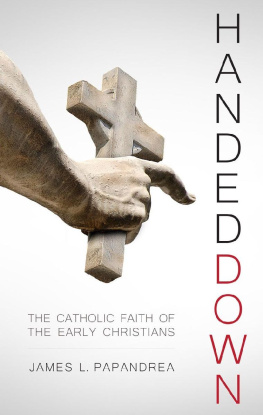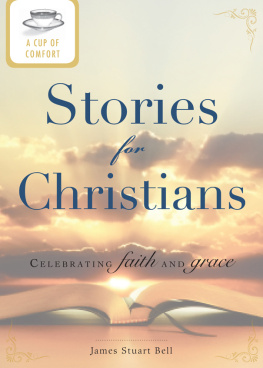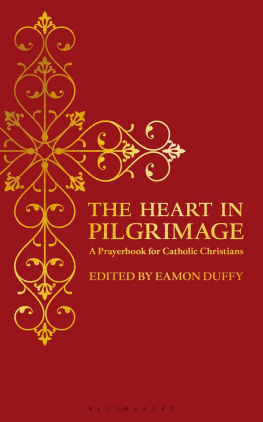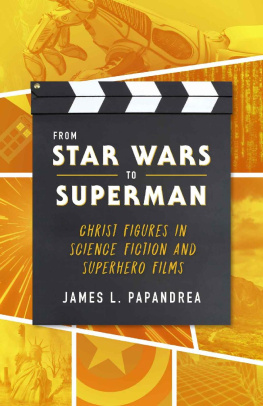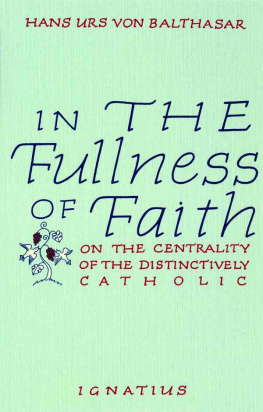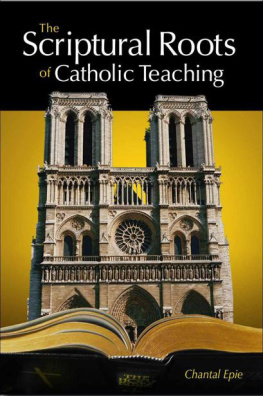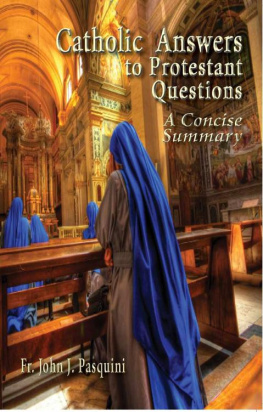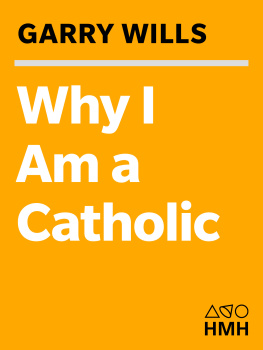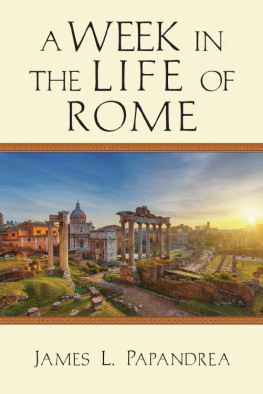James L. Papandrea - Handed Down: The Catholic Faith of the Early Christians
Here you can read online James L. Papandrea - Handed Down: The Catholic Faith of the Early Christians full text of the book (entire story) in english for free. Download pdf and epub, get meaning, cover and reviews about this ebook. year: 2015, publisher: Catholic Answers Press, genre: Religion. Description of the work, (preface) as well as reviews are available. Best literature library LitArk.com created for fans of good reading and offers a wide selection of genres:
Romance novel
Science fiction
Adventure
Detective
Science
History
Home and family
Prose
Art
Politics
Computer
Non-fiction
Religion
Business
Children
Humor
Choose a favorite category and find really read worthwhile books. Enjoy immersion in the world of imagination, feel the emotions of the characters or learn something new for yourself, make an fascinating discovery.
- Book:Handed Down: The Catholic Faith of the Early Christians
- Author:
- Publisher:Catholic Answers Press
- Genre:
- Year:2015
- Rating:5 / 5
- Favourites:Add to favourites
- Your mark:
- 100
- 1
- 2
- 3
- 4
- 5
Handed Down: The Catholic Faith of the Early Christians: summary, description and annotation
We offer to read an annotation, description, summary or preface (depends on what the author of the book "Handed Down: The Catholic Faith of the Early Christians" wrote himself). If you haven't found the necessary information about the book — write in the comments, we will try to find it.
Handed Down: The Catholic Faith of the Early Christians — read online for free the complete book (whole text) full work
Below is the text of the book, divided by pages. System saving the place of the last page read, allows you to conveniently read the book "Handed Down: The Catholic Faith of the Early Christians" online for free, without having to search again every time where you left off. Put a bookmark, and you can go to the page where you finished reading at any time.
Font size:
Interval:
Bookmark:

Handed Down
The Catholic Faith of the Early Christians
J AMES L . P APANDREA
Handed Down
The Catholic Faith of the Early Christians

2015 James L. Papandrea
All rights reserved. Except for quotations, no part of this book may be reproduced or transmitted in any form or by any means, electronic or mechanical, including photocopying, recording, uploading to the Internet, or by any information storage and retrieval system, without written permission from the publisher.
Published by Catholic Answers, Inc.
2020 Gillespie Way
El Cajon, California 92020
1-888-291-8000 orders
619-387-0042 fax
catholic.com
Printed in the United States of America
Cover design by Devin Schadt
Interior design by Sherry Russell
978-1-941663-53-0 hardcover
978-1-941663-54-7 paperback
978-1-941663-55-4 Kindle
978-1-941663-56-1 ePub
This book is dedicated to the memory of
Innocence G. Vetrano (1922-2012),
and to three generations of the Vetrano family:
living witnesses to Gods love and hospitality.
Preface
St. Peter wrote to the early followers of Jesus, Always be ready to give an explanation to anyone who asks you for a reason for your hope (1 Pet. 3:15). However, many Catholics are not prepared for that conversation, and sometimes they even end up reinforcing myths and mistaken assumptions about Catholicism. By highlighting the consistency between the earliest Christians and the Catholic Church of today, by demonstrating that Catholicism is both rational and ancient, this book will help prepare you to answer the questions posed by your non-Catholic friends and relatives, and to defend and share your Catholic faith.
In the very next verse, of course, Peter adds, but do it with gentleness and reverence, keeping your conscience clear. So this book is not ammunition to be used against fellow Christians. It is not meant to fuel the fire of mistrust, or create more distance between us and our separated brethren. Rather, it is meant to draw us together into conversation, in the spirit of unity that Christ intended for his universal Church. It is more like food for the journey, as we walk alongside our non-Catholic brothers and sisters.
James L. Papandrea
Introduction
Who Are the Church Fathers, and Why Do They Matter?
All Christians accept that God is active within creation, within and throughout human history. We believe that Gods greatest and most significant act in history is the Incarnationin the conception, birth, life, ministry, death, and resurrection of Jesus Christ. In the person of Jesus, the Divine entered historyand entered humanityby becoming one of us. For Christians, then, history matters . Ours is not a religion based on mythical events that happened in some hazy time before time, or on the top of Mount Olympus; ours is a religion based on recorded historical events, in which God has revealed to humanity something about himselfdefinitively in the person of Jesus Christ.
We further believe that Jesus founded a fellowship that he called his Church, and that the men and women who were his first followers, and whom he chose to succeed him in the mission of his Church, were real people who laid the foundation for our religion on their faith in him and his teachings.
Any religion is, by definition, conservative. In other words, it conserves, or preserves, a tradition by handing it on from one generation to the next. Even the apostle Paul admitted that he had received something from the other apostles who had been eyewitnesses of Jesus ministry. We may talk about to what extent the Church has succeeded in that mission (it is still a human institution, after all), but we cannot ignore the foundation of our Faith and still call ourselves Christians.
Furthermore, we cannot ignore Jesus promise that the Church would never completely fail in its mission. In response to Peters confession of faith in him, Jesus said: Blessed are you, Simon, son of Jonah. For flesh and blood has not revealed this to you, but my heavenly Father. And so I say to you, you are Peter, and on this rock I will build my church, and the gates of the netherworld shall not prevail against it (Matt. 16:1718). In other words, if the Church fails in its mission to faithfully and correctly preserve and pass on the Tradition that Jesus and the apostles founded, then the Church is no longer the Church and hell wins. But Jesus has promised that this will not happen. Could he fail to keep his promise? We say no, and we believe that the Holy Spirit has been active throughout the entire history of the Church to make sure that the gates of hell do not prevail against it.
T HE F IRST S TEWARDS OF T RADITION
The author of the letter to the Hebrews wrote, Therefore since we are surrounded by so great a cloud of witnesses, let us rid ourselves of every burden and sin that clings to us and persevere in running the race that lies before us, while keeping our eyes fixed on Jesus, the leader and perfecter of faith (Heb. 12:12). Cloud of witnesses is a way of talking about the communion of saints, which includes all Christians who have ever lived. It means that in a way, all those who went before us in the Faithindeed all those who participated in handing on the Faith to usare cheering us on in this marathon that is the Christian journey. They are our ancestors in the Faithall those who lived (and many who died) to give it to us.
Of course, most of those people didnt write books or documents that we can read today, or leave any other tangible legacy. But some did. And the earliest of these we call the Fathers of the Church.
The Fathers were not simply theologians speculating in ancient ivory towers. They were pastors, preachers, and teachers, often more concerned with instructing and guiding the people of their churches than writing for fellow scholars. In fact, when it came to teaching the laity, they were usually more interested in how to live as a Christian than how to think as a Christian. Of course, they did write books on theologya lot of themand we are blessed by that gift because in those books they interpret and help us understand the meaning of Gods revelation, especially in Scripture.
The successors of the apostles are the bishops of the Church, and many of the first bishops were handpicked by the apostles themselves. But not all the Church Fathers were bishops. Some were lay catechists and theologians. Others were priests, but not bishops. These theologians supported the work of the bishops and submitted their own work to the bishops for the Churchs official affirmation. (On the other hand, not all bishops can be considered Fathers of the Church, since some of them deviated from the apostolic Tradition and became heretics, teaching alternative theologies that led the laity astray and caused division within the Church.) Together these Fathers of the Churchthe early bishops, along with other theologianspassed the faith-tradition from one generation to the next.
We can see this beginning with Peter himself, in the last chapter of the Gospel of John. There, as Peter is reconciled to Jesus after denying him, Jesus tells him to feed and tend his sheep (John 21:1517).
Therefore the early Fathers of the Church are those who received what was handed on to them from Jesus and the apostles, and faithfully transmitted it to the Christians of their dayand through their writings, to the Christians of future generations. We will meet several of these writers as we explore the beliefs and practices of Catholicism, and we will see how what they taught has been preserved in the Catholic Church down to the present day.
Next pageFont size:
Interval:
Bookmark:
Similar books «Handed Down: The Catholic Faith of the Early Christians»
Look at similar books to Handed Down: The Catholic Faith of the Early Christians. We have selected literature similar in name and meaning in the hope of providing readers with more options to find new, interesting, not yet read works.
Discussion, reviews of the book Handed Down: The Catholic Faith of the Early Christians and just readers' own opinions. Leave your comments, write what you think about the work, its meaning or the main characters. Specify what exactly you liked and what you didn't like, and why you think so.

